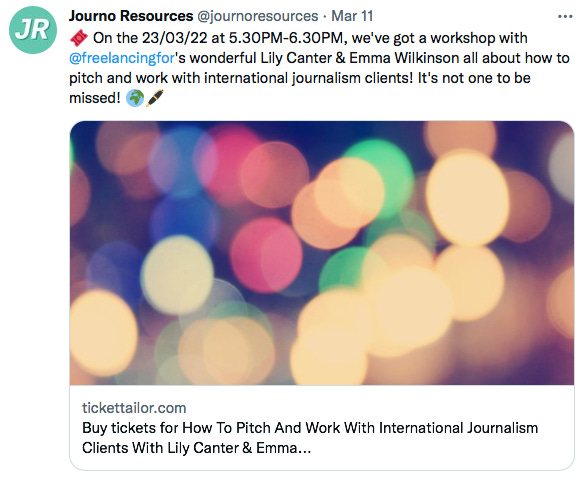The beauty of being freelance is that your work can take any shape or form that you fancy. Some people refer to this as having a side hustle whilst others prefer the term portfolio career. Wearing multiple career hats has many advantages as it allows you to follow your interests and keep your mind stimulated with different challenges.
FFJ co-founder Lily Canter is a freelance money, health and lifestyle journalist but also lectures one day a week and coaches runners one evening a week. Meanwhile Emma Wilkinson works as a health and medicine freelance journalist whilst also fitting in lecturing, editing and medical event management work.

There are several things to consider when building up a matrix of work opportunities to ensure you are not stretched too thin or on the verge of burning out. It can also be useful to compartmentalise certain aspects of your work and create boundaries so you are able to move between different roles.
Branding
A good starting point is to think about how you intend to brand yourself, and where. If you are a journalist but also a copywriter do you need to explain both of these roles in your social media profiles? And what about your website, email address and email signature?
Some people choose to completely separate these roles having one website and email address for journalism work and another website and email address purely for copywriting. Others prefer to have everything in one place and sometimes brand themselves with a broad name like Scott Media which can incorporate all aspects of their work (journalism, public relations and media for example).
It may be that some social media channels are more appropriate for different parts of your portfolio than others. For example Lily Canter uses Twitter for her journalism and FFJ work but her Instagram focuses on running whether that's coaching, training progress or articles she has written about running. She also has a running Facebook group where her journalism work is never mentioned.
Working out the best approach for you will be very personal to your individual set of circumstances so take a look at what other people are doing and pick the solution that will be easiest to manage.

Time allocation
Again this is very personal but consider whether you need to allocate different amounts of time or days of the week for the various aspects of your work. You may only send or respond to journalism related emails Monday to Wednesday and use the rest of the week for all other work. You can set up automatic email responses that explain this to your clients.
Or you might divide each day into tasks ensuring you only spend a proportionate amount of time on your side hustle. For example if you earn 20% of your income on something other than journalism then try to only spend 20% of your time doing it. And in a list of 10 daily tasks make sure it only takes up two.
Imposter syndrome
Try to avoid the thinking that you are a jack-of-all trades and master of none. Plenty of people are good at lots of different things. Some of these involve transferable skills but many of them do not. And that's fine.
You don't have to feel like an imposter just because you are a journalist-cum-copywriter-cum-podcaster-cum-artist. A career for life is largely an outdated notion. You can be a multi-hyphenate. Embrace the variety and don't get hung up on singular notions of what you 'are' or what your job 'is'.
Taxes
One thing you will need to be more precise about it your tax self assessment. If you can find a common thread through your work then you can register yourself as a sole trader under an umbrella name.
Waseem Mirza, who features in an upcoming episode of the Freelancing for Journalists podcast, does journalism, voice work and screen acting. Since these are all different forms of storytelling for tax purpose they all fall under his sole trader name of Mirza Productions.
But this approach might not always work. On the advice of her accountant Lily Canter files two sets of incomes/expenses each year. They both come under her sole trader name Lily Canter but are listed separately on her tax return.
Her journalism, online training and FFJ work fall under the 'journalism' work category whilst her running coaching is separated into 'coaching' (her lecturing work is PAYE).
There is also the option to set up one or more limited companies. If you are not sure what is the best approach then ask around in networks like the FFJ Facebook group or ring up the HMRC to check.
What’s coming up
We’ve teamed up with Journo Resources to host a workshop on pitching and working with international journalism clients. The online event at 5.30pm on Wednesday 23rd March will cover creating tailored pitches and writing for overseas outlets as well as details on how to manage international payments. Sign up at the button below.
There are also still some slots for the next round of our Journalism Work Experience Initiative. To access the scheme you need to sign up to the induction session on the 30th March (recordings are available) which then gives you 12 months of access to a database of remote work experience opportunities with experienced journalists. Bursary places are available - just email us to find out more.
Triumph of the week
Getting sent brand new running shoes to review. The career highlight so far!
That feeling when
You quickly sent a pitch knowing you didn’t really have time to write it but couldn’t help yourself and then of course that is the one that gets commissioned. Who needs sleep…
We love to hear your feedback on everything we do, so feel free to drop us an email anytime at freelancingforjournalists@gmail.com
Bye for now!








